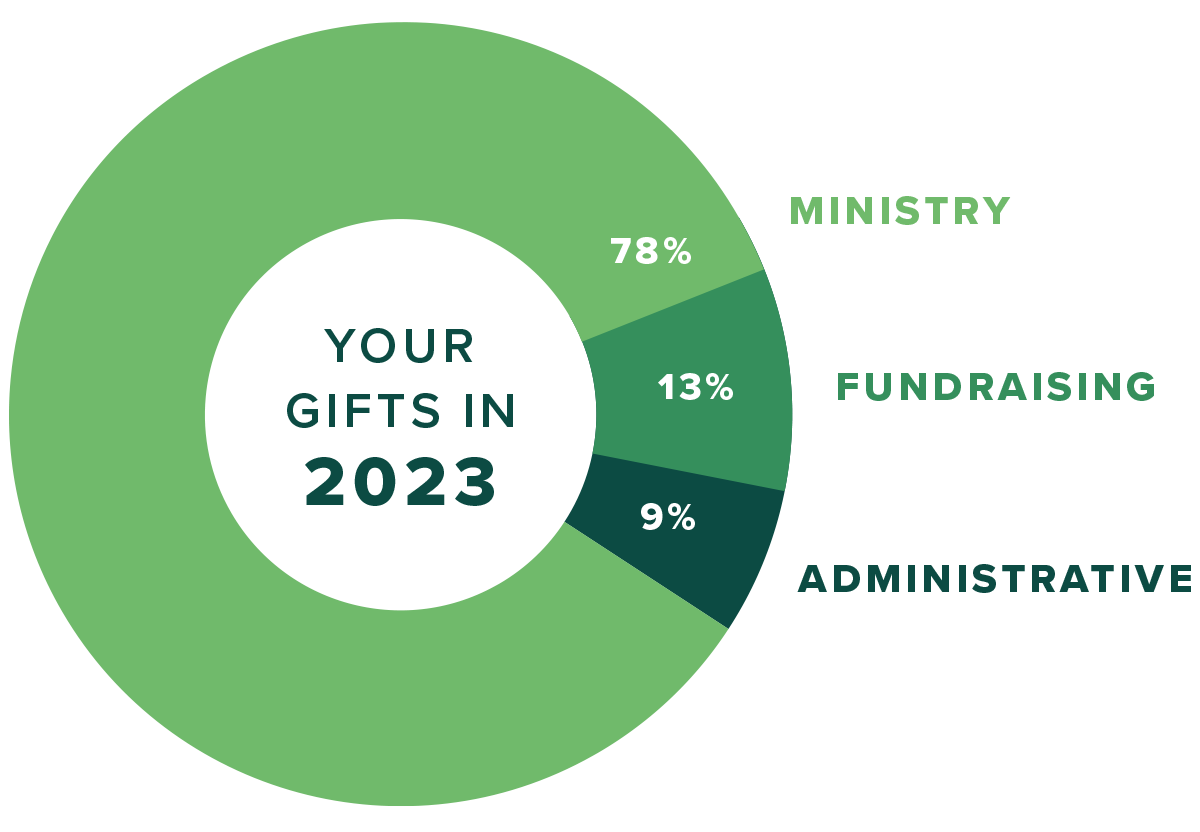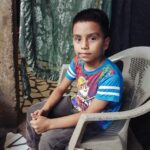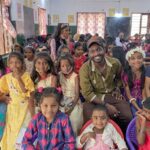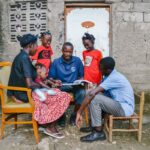From experiencing hardship as a child to finally finding his calling, a Child Champion in Ethiopia draws motivation from his past to give hope to his community – particularly moms living in poverty.
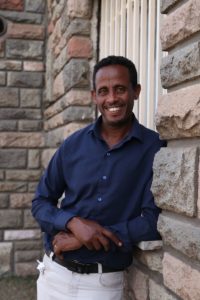
A vision from God turned Getahu’s life around.
As a child, Getahu Gashun lived with his parents and nine siblings in Arise Negele, in the Oromia region of southern Ethiopia. He had a normal childhood until he was 13, when things unexpectedly took a turn for the worse.
It all began with curiosity that led him to read the Bible. One day as he read through the Bible, he heard a voice speak to him, calling him to salvation, says Gethu, who was then in grade seven.
He believes the voice he heard that day was the voice of God speaking to him because after hearing the voice, he got a better understanding of what salvation is.
He then made his mind up to follow Jesus – a move that did not go well with his family. His parents disowned him and chased him away from home. Getahu was forced to live on the streets.
While in the streets, he went hungry and got sick but never gave up on what he believed was the truth.
“Rejection is painful, mostly as a child,” he says. “But the Word of God had touched my heart and I had decided to follow Christ. I got a vision from God and because of the vision I focused on reading the Bible and it directed my life, and I believed the Word was the truth.”
Despite the rejection from his family, who held different beliefs, he was born again and baptized in a local church in his area.
A Loving Church
By God’s grace, the local church that baptized him had a ministry that supported the persecuted. So the church took him in and provided him with shelter, food, and clothes.
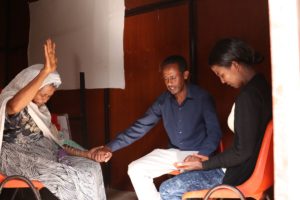
A large part of Getahu’s ministry involves praying with moms and sharing the hope of God with them.
The church also provided for his educational needs by buying him school supplies that included writing material and school uniforms. Education in Ethiopia’s government schools is free, but kids are required to purchase the school supplies.
He also had a Child Champion, Muglugeta, who prayed, gave him hope, and held his hand as he struggled in life.
After completing primary school, he joined a high school in a small town 24 miles from the capital city, Addis Ababa. While in high school, he became a peer and a discipleship teacher of youths in his church.
After high school, Getahu was hired at Mercy Hope Center in Addis Ababa as a security guard.
Having not pursued any higher-level education, his chances of getting a job in Addis Ababa were low, so when he landed a job at the Hope Center, he was relieved.
“I had not joined college because I had no money, and beyond that, I needed to fend for myself. So even the position of a security guard for me was a blessing because I was able to make money to meet my needs,” Getahu recalls.
Answering a Call to Ministry
Through the job, he was able to save up for his college education. He registered for a diploma in law in a local college in Addis Ababa. Upon graduation, he got a scholarship from a local university to upgrade his diploma to a degree in law.
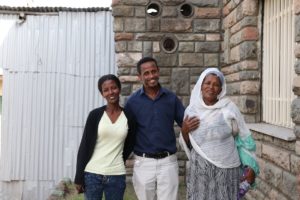
Mothers of kids at the Hope Center share their struggles with Getahu, and he in turn shares the love of Jesus with them, giving them hope and motivation.
After attaining his bachelor’s degree in law at 28, Getahu decided instead to follow his calling in ministry. He returned to the Hope Center to serve the kids.
For 19 years he has worked as a social worker, a Sunday school teacher for the young kids, and as a coach for the youths.
Getahu says that as he served at the Hope Center, he got a special call from God to reach out to families in his community.
As he thought of the call from God, he realized that most kids were brought to the Hope Center by their mothers. But before the mothers would leave for home, they would go to Getahu to share about the struggles they faced at home and would later ask him to pray for them.
“Kids at the Hope Center are from different religious backgrounds, and the only similarity is that they are all in a hard place,” Getahu explains. “Some mothers come in not knowing God, but after sharing their struggles with me, I talk to them and give them hope, but before they leave, I always ask if they would like for me to pray for them, and they always accept. After they leave, some go home and give a deep thought to our talk.”
He drew his joy in knowing that most mothers left the Hope Center with hope and a motivation to live life. Some would later return and accept to follow Christ. This meant Getahu would lead them in a salvation prayer, then organize a schedule to teach them about the Word of God.
Soon, the number of moms wanting to know the Word of God grew.
A Ministry for Moms
In his quest to teach the moms, he decided to start a Sunday school for them. Currently, 150 moms attend his one-hour Sunday school sessions. The moms are divided into smaller groups and each group is allocated a specific time for their session. He also has a curriculum that he uses to teach them.
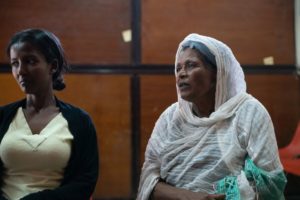
Mothers used to sit and wait while their kids attended Sunday school. Now they are learning and fellowshipping in their own class.
After setting up the moms’ Sunday school, he realized that the classes were having a ripple effect in the community. Most families were now becoming curious about the gospel, and the word was spreading in the community.
It is then that Getahu realized that the moms had been spreading the gospel.
“Mothers are not only the bridge to getting to the family, but they are also the foundation. So, when you reach out to mothers you reach out to the rest of families,” he says.
Getahu also believes that for children to be reached with the love of God, they need to hear it from their parents. So his mission is to reach the moms so that they can in turn share with the kids.
In addition to most families learning the gospel, he says, the Sunday school also has helped reinforce the virtues the kids learn while at the Hope Center.
Getahu, 47, says his background as a child, before he got saved, helps him understand and respect the different religious thoughts and views that the mothers in his community have.
“I always respect their different thoughts, but I share the truth boldly. My job is drawing Jesus in their hearts, and apart from teaching them, I also live in ways that draw them to Christ,” he says.
Over the years, he has seen the ministry transform many families. But one testimony that is dear to him is of a single mom who was struggling to raise her son, Daniel. Due to the struggles she faced in life, the mom always kept to herself and was afraid of talking to people. But conversations with Getahu changed her perspective on life.
Getahu says she became hopeful and supportive of her son. She also began serving at church. After her son graduated from school and also from the OneChild sponsorship program, he got a job and is now able to better support his mom.
Getahu says he is happy because he knows the family is now thriving.
Currently, Getahu has reconciled with his parents and is also raising a family of his own. His dream in life is to continuously serve and give hope to families in hard places.
We are accountable to the children we serve AND to our donors.
Our accountability to our donors is one of our highest priorities. Our goal is to use the funds entrusted to us as wise stewards. To do this requires continued monitoring of our fund distribution. OneChild is also a member in good standing with the Evangelical Council for Financial Accountability (ECFA)
